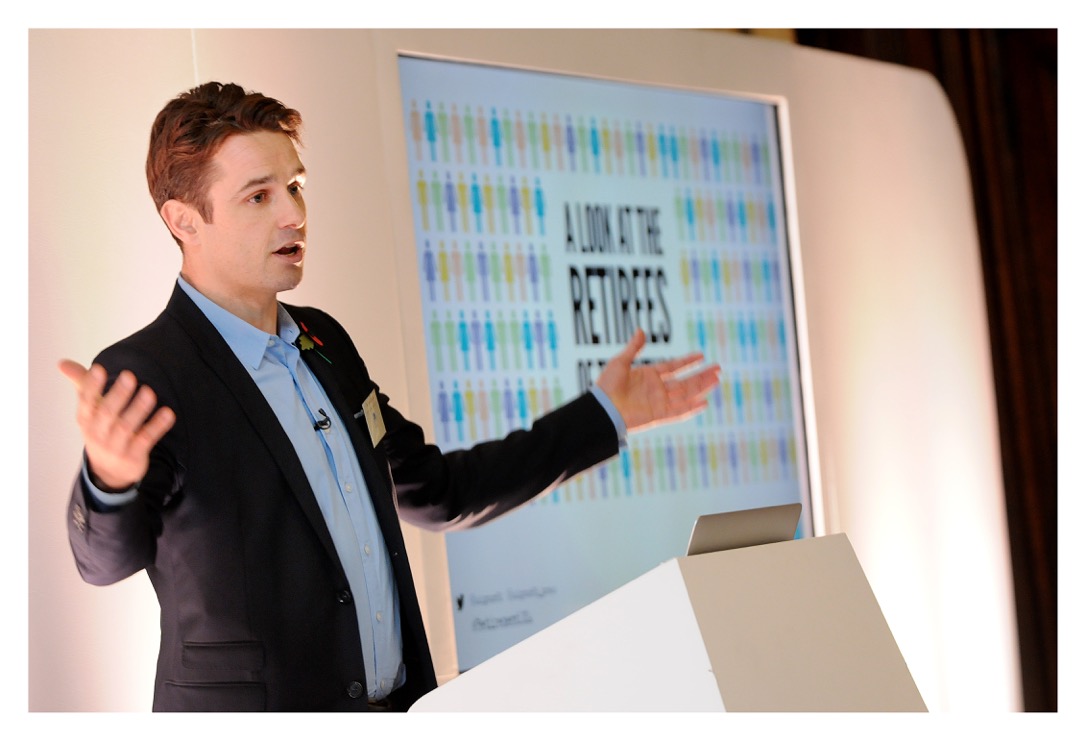Most of us prefer to the thrill of buying now rather than saving and safeguarding our financial future, according to new research from the Skipton Building Society.
But it may not be all our fault as our brains are not programmed to behave in our own best interests when it comes to money.
As part of a campaign to get under the skin of the nation’s retirees, it’s been revealed this week, by Skipton Building Society, that our brains could have a lot to answer for, when it comes to the nation’s lack of preparedness for retirement.
• Over 50% feel unprepared for retirement 10-15 years out
• 30% have no idea how much is in their pension pot
• Physiological testing illustrates people confused about their futures
• Desire for immediate gratification creates barrier to financial planning
• Our brains need to be retrained to create stronger financial futures
As part of their DNA of Retirement research undertaken earlier this month, (which is believed to be a first for UK financial services) physiological responses were explored to provide a 360 degree insight into hopes and fears surrounding retirement and financial planning for our futures.*
It was revealed that over 50% were feeling unprepared for retirement at 10 to 15 years out, with 30% having no idea how much money is in their pension pot. Worryingly, nearly a quarter of people revealed they don’t have a retirement plan. Overall, anxiety was evident as nearly two thirds of retirees lacked the confidence that they are financially prepared for their retirement.
In follow up, Skipton, the UK’s fourth largest building society, has been working with leading neuroscience consultant and published author of best selling book‘Sort your Brain Out’, Dr Jack Lewis. Together, they can now reveal further insights from the analysis of the research data, which shows that our neurological programming could be a huge stumbling block in our pension planning.
Dr Jack said: “Our brains are not designed to ensure we are financially prepared for the future. In today’s fast paced world our brain is still tuned into instincts honed several millennia ago which encourage us to seek immediate gratification. If I offered a room of people £100 cash today, or £150 cash in a month, the majority would take the “safe” instant £100. This is because our brains are biased in favour of any decisions that give us a quick return. Of course, if we allow every financial decision we make to fall into the ‘live for the moment’ trap – then clearly the nation’s financial preparedness for retirement will be in a dire state.”
This is accentuated even further if we are not clear what our futures look like and confusion around our vision was also a key finding of the DNA of Retirement research. Most people, when questioned, described clear and inspired plans, covering aspirations from wing walking to starting new businesses. However, 64% of people’s physiological responses contradicted their stated desires. For example, what they said they wanted and what their subconscious revealed they wanted were different things.
Other findings of the research were that a significant proportion of the respondents were very aspirational about their futures, and the aspirations they had for retirement were quite elaborate. However, it didn’t appear that these dreams were matched by financial preparedness, thus illustrating a HUGE risk in terms of financial stability of our futures.
Dr Jack added: “The brain is a complex organ. We can shape it and mould it according to any behaviour that we regularly, intensively and consistently perform. However one critical step that is often overlooked is the need to consciously steer ourselves towards behaviours that yield the best return in the long run. As a general rule we tend not to care much for the best interests of our future selves. It is important to spend time vividly imagining the big picture to focus our mind on long term goals. If we never take the time to think about what kind of lifestyle we want to be living in retirement, then we simply have nothing to set our sights on. Asking people to financially plan for something that their brain is not emotionally engaged by is a big ask when we have so many immediate financial concerns. We can re-wire our brains by adopting new habits but to do this we first need to subtly alter our behaviours, beliefs, and motivations according to the best interests of our future selves.”
As part of their commitment to supporting people in and approaching retirement Skipton has launched a free Retirement Review** service in all branches nationwide, where people can call in and have a chat with a financial advisor to help them start to picture what kind of retirement they want, to then help them plan for it. They are also developing a persona app to help people visualise their future based on their own personal Retirement DNA, which will be rolled out in branch in the coming months.
David Cutter Group Chief Executive of Skipton Building Society, said: “Our research has revealed some worrying trends – we cannot have a country bursting with aspiration whose hopes will then be struck down by apathy or aversion to financial planning.
“As a mutual, we were established 161 years ago to help tackle the prevalent social issue of the time – helping ordinary people to build their own homes. Through our new retirement service, we’re bringing this ethos bang up to date by tackling THE financial issue of today.”
Skipton, the UK’s fourth largest building society, is keen to gain a true understanding of people’s retirement wishes, in order to be able to help them realise their goals, in line with its new Retirement Service.Skipton is currently offering a free will for anyone who has a free Retirement Review in any of its branches.







